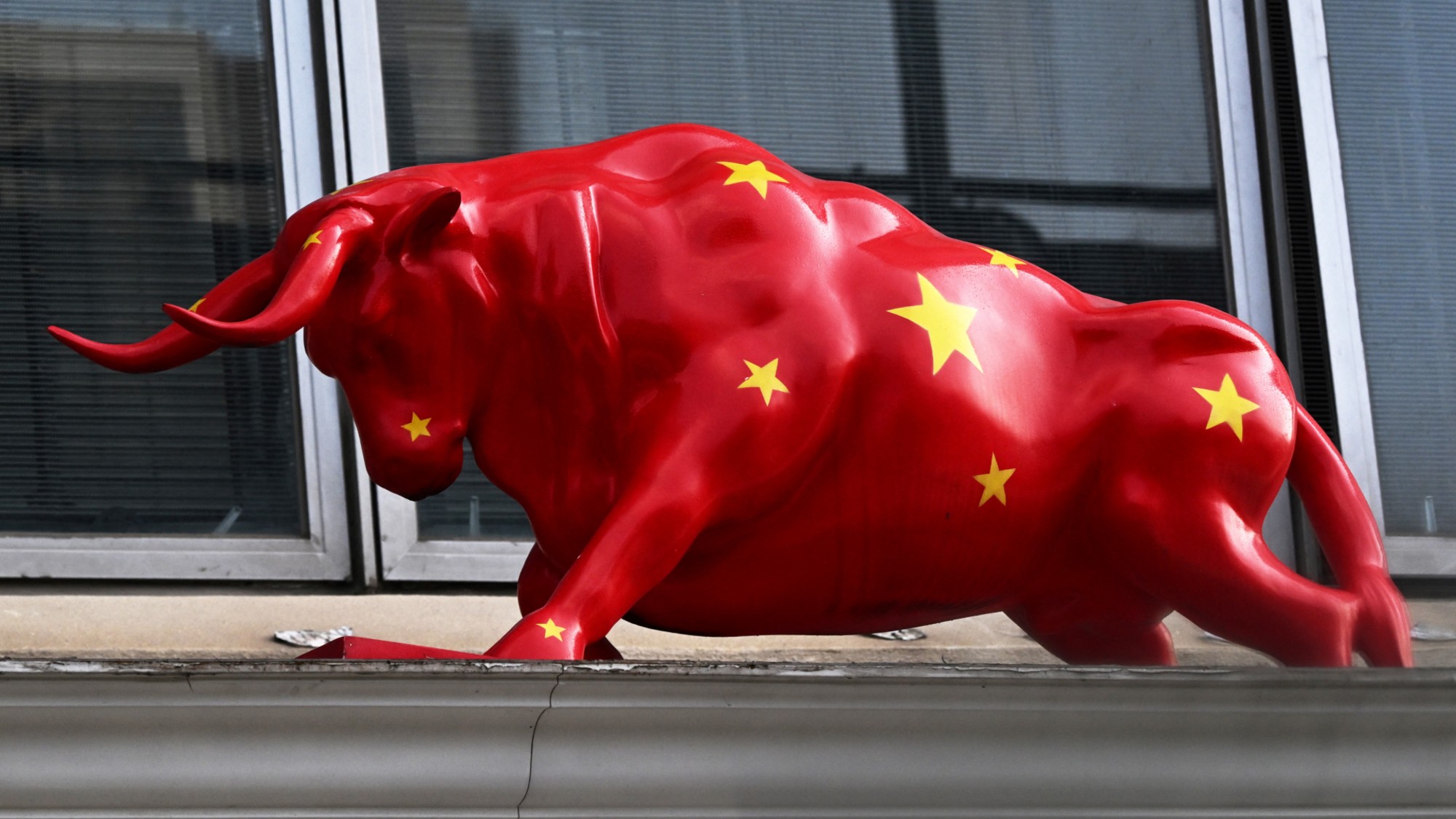Who would win in a China-US trade war?
Tariff pain will be higher for China but Beijing is betting it can weather the storm

A free daily email with the biggest news stories of the day – and the best features from TheWeek.com
You are now subscribed
Your newsletter sign-up was successful
The escalating trade war between China and the US is fast becoming a battle for dominance between two strongman leaders – and neither looks willing to back down.
Xi Jinping hit back again at Donald Trump today, with China saying it would impose 84% tariffs on US goods. It told the World Trade Organization that the situation had "dangerously escalated", after the Trump administration responded to China's initial 34% retaliatory tariffs with the imposition of 104% tariffs on almost all Chinese imports, causing Asian stock markets to tumble.
"If war is what the US wants, be it a tariff war, a trade war or any other type of war, we're ready to fight till the end," the Chinese foreign ministry has said. But any type of conflict between the world's two biggest economies has potentially catastrophic consequences for both – and for the rest of the world.
The Week
Escape your echo chamber. Get the facts behind the news, plus analysis from multiple perspectives.

Sign up for The Week's Free Newsletters
From our morning news briefing to a weekly Good News Newsletter, get the best of The Week delivered directly to your inbox.
From our morning news briefing to a weekly Good News Newsletter, get the best of The Week delivered directly to your inbox.
What did the commentators say?
Chinese officials made the same mistake as many US institutions, said James Palmer, deputy editor of Foreign Policy. "They thought that Trump's second term would look like his first, without realising that the guard-rails were already broken."
There must be "some nerves" now in Beijing, said Richard Spencer, China correspondent of The Times. But Xi believes that China will be "best placed to come out on top" because it has "one long-term advantage" over the West. A few percentage points knocked off of GDP, which would be "politically disastrous in the West", would only return China to "where it was a couple of years ago".
"Anyone advising Trump that Xi will beg for forgiveness is committing malpractice", posted Ryan Hass of the Brookings Institution on X. That's a fair characterisation, said Gordon G. Chang, author of "Plan Red: China's Project to Destroy America", in Newsweek. But "anyone advising Xi not to beg Trump for forgiveness is also committing malpractice". China's economy is less than two-thirds the size of America's.
The US also has a huge trade deficit with China. Trade-surplus countries have "no ammunition" in a trade war; they have "everything to lose". The US export market is "irreplaceable", so Xi has placed the fate of China's failing economy in Trump's hands. Trump "holds all the high cards". Xi's only way out is to get Trump to back down.
A free daily email with the biggest news stories of the day – and the best features from TheWeek.com
Yes, the "one-sided nature of the trade relationship" means the tariff hit will be far greater for China, said George Magnus of Oxford University's China Centre in The New Statesman. But, struggling or not, China's $20 trillion (£15.6 trillion) economy "should be able to absorb it", especially if Beijing "takes remedial actions" to mitigate the effects on export firms and jobs.
Xi is also sitting on "a potentially nuclear option", said Melissa Lawford, economics reporter at The Telegraph. China is the world's second-largest holder of US debt, after Japan. It holds at least $761 billion (£595 billion) in US government bonds. If China opted to "dump" these treasuries, "the blow to the US would be seismic" – although the pain for China would also be huge.
What next?
"We're at a real fork in the road," Scott Kennedy, a senior adviser at the Center for Strategic and International Studies think tank in Washington, told reporters last week. We could see "a resumption of a more stable relationship" between the US and China, or we could see "tariffs go sky high and investment fall". That would lead to an "decoupling between the two economies".
This would "upend global supply chains and roil parts of each economy", said CNN. Both sides have "a strong interest, ultimately" in cutting a deal, but it remains to see if such a deal is possible.
China's leaders plan to meet today to "hammer out measures to boost the economy and stabilise capital markets", sources told The Independent. China is also mulling a ban on importing Hollywood films, according to Bloomberg.
In the end, a trade war is "a contest in ability to endure pain", said Foreign Policy's Palmer. And Beijing is betting that Chinese citizens can better endure that pain than Americans.
Harriet Marsden is a senior staff writer and podcast panellist for The Week, covering world news and writing the weekly Global Digest newsletter. Before joining the site in 2023, she was a freelance journalist for seven years, working for The Guardian, The Times and The Independent among others, and regularly appearing on radio shows. In 2021, she was awarded the “journalist-at-large” fellowship by the Local Trust charity, and spent a year travelling independently to some of England’s most deprived areas to write about community activism. She has a master’s in international journalism from City University, and has also worked in Bolivia, Colombia and Spain.